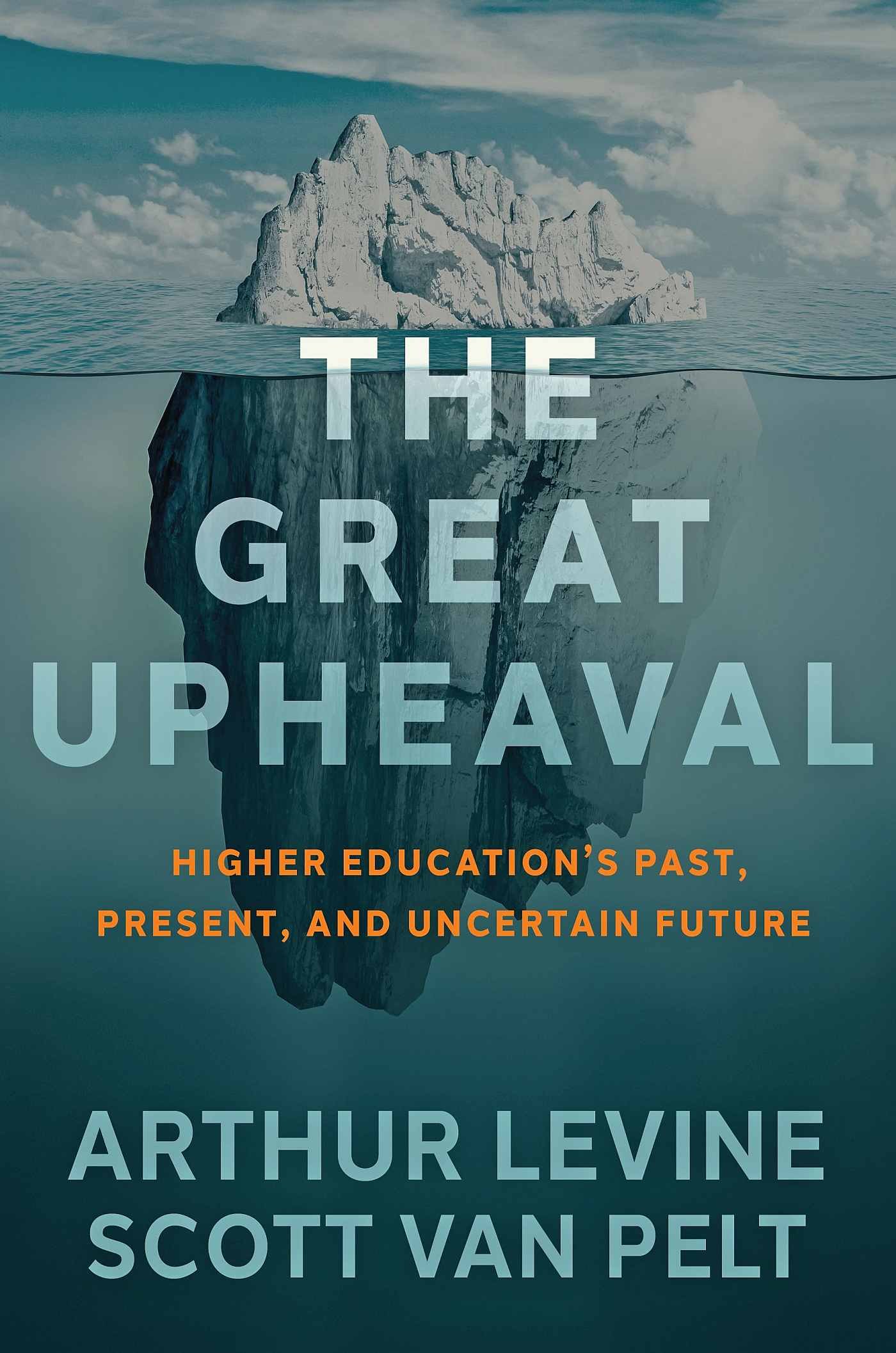The Great UphEaval
Higher Education's Past, Present, and Uncertain Future
The United States is in the midst of a profound transformation the likes of which hasn't been seen since the Industrial Revolution, when America's classical colleges adapted to meet the needs of an emerging industrial economy. Today, as the world shifts to an increasingly interconnected knowledge economy, the intersecting forces of technological innovation, globalization, and demographic change create vast new challenges, opportunities, and uncertainties. In this great upheaval, the nation's most enduring social institutions are at a crossroads.
In The Great Upheaval, Arthur Levine and Scott Van Pelt examine higher and postsecondary education to see how it has changed to become what it is today—and how it might be refitted for an uncertain future. Taking a unique historical, cross-industry perspective, Levine and Van Pelt perform a 360-degree survey of American higher education. Combining historical, trend, and comparative analysis of other business sectors, they ask:
how much will colleges and universities change, what will change, and how will these changes occur?
will institutions of higher learning be able to adapt to the challenges they face, or will they be disrupted by them?
will the industrial model of higher education be repaired or replaced?
why is higher education more important than ever?
Concluding with a detailed agenda for action, The Great Upheaval is aimed at policy makers, college administrators, faculty, trustees, and students, as well as general readers and people who work for nonprofits facing the same big changes.
What People Are Saying
“On the subject of higher education, Arthur Levine is astonishingly prescient, spotting trends on the horizon long before they come into focus for the rest of us.”
—Rafael Reif, President
Massachusetts Institute of Technology
“Bravo to the authors for being clear-eyed instead of overwrought, suggesting a positive way forward for a critically important institution.”
— Deborah Quazzo, Managing Partner
GSV Ventures
“With tectonic shifts underway in higher education, The Great Upheaval could not be more timely. A well-researched, well-written, and measured analysis fueled by a burning urgency to see higher education reclaim its central role in the American promise of opportunity and social mobility for all.”
— Paul J. LeBlanc, President
Southern New Hampshire University
About Arthur Levine
Arthur Levine is Distinguished Scholar of Higher Education at New York University. He is also President Emeritus of Teachers College, Columbia University and president Emeritus of the Woodrow Wilson National Fellowship Foundation (now Institute on Citizens and Scholars). Levine has been a faculty member and chair of the Institute for Educational Management at the Harvard Graduate School of Education, president of Bradford College and senior Fellow at the Carnegie Foundation. He was also the founder and first president of the the Woodrow Wilson (now High Meadows) Graduate School of Teaching and Learning. Levine has authored 13 books, including The Great Upheaval: Higher Education’s Past, Present, and Uncertain Future (9/21), and published scores of articles in venues such as the Wall Street Journal, New York Times, Washington Post, Los Angeles Times, Politico, the Chronicle of Higher Education, Education Week and Inside Higher Education. He has appeared on shows such as 60 Minutes, The Today Show, All Things Considered, Morning Edition, Open Mind and Fox News. Levine has received a number of awards including 26 honorary degrees and Carnegie, Fulbright, Guggenheim and Rockefeller Foundation Fellowships. He is a member of the American Academy of Arts and Sciences.
ABOUT SCOTT VAN PELT
Scott Van Pelt is a higher education professional and instructor who has held a variety of administrative and teaching positions over the past decade, including roles in the areas of academic advising, admissions, student life, instructional technology, and curriculum design. A graduate of the M.A. and Ed.M. programs in Higher and Postsecondary Education from Teachers College, Columbia University, Scott’s academic interests lie at the intersection of technology and pedagogy.
Currently, Scott is an associate director with the Communication Program at the Wharton School of the University of Pennsylvania. In this role, Scott designs and implements the curricula for business communication courses within the MBA core curriculum. He also teaches several courses in the program, including Management Communication and Crisis Communication. Scott is a skilled facilitator, with experience designing and delivering sessions on communication skills to audiences as varied as Wharton's Non-Profit Board Fellows Program, PhD students in the Fulbright Scholars Program, and certificate students in the Strategic Leadership in Education certificate program at Penn GSE.


